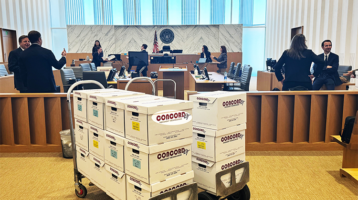Are You Committing E-Discovery Malpractice?
If you don’t ask the court to enter a clawback order in every case, you may be committing e-discovery malpractice, at least according to U.S. Magistrate Judge Andrew J. Peck.
A clawback agreement extends the protections automatically afforded under Federal Rule of Evidence 502(b), which prevents disclosure from operating as a waiver in three circumstances:
- the disclosure is inadvertent;
- the holder of the privilege or protection took reasonable steps to prevent disclosure; and
- the holder promptly took reasonable steps to rectify the error, including (if applicable) following Federal Rule of Civil Procedure 26 (b)(5)(B).
Although this protection is helpful, it is limited by the court’s ability to determine whether a party’s actions were reasonable. Parties therefore should take the matter out of the court’s hands by leveraging other provisions of the rule. Rule 502(d) provides that federal courts can order that inadvertent disclosure does not waive privilege or other protection in the current or other proceedings; 502(e) establishes that an agreement that specifies the effect of a disclosure binds only the parties to that agreement unless it is incorporated into a court order. Therefore, parties that sign an agreement but do not ask the court to enter it are overlooking a significant step that can protect their most sensitive information.
Some courts provide model orders that include these provisions: Judge Peck’s model order is brief, while others, such as U.S. District Judge Paul W. Grimm’s Discovery Order, are part of more elaborate protocols. For other sample Rule 502(d) orders, see the Seventh Circuit Electronic Discovery Pilot Program’s Model Case Management Order and the model draft of a rule 502(d) order published in the Fordham Law Review.
At a minimum, when drafting a clawback agreement, parties should insist upon the following provisions:
- Reference Rule 502(d) of the Federal Rules of Evidence and avoid mentioning Rule 502(b), “inadvertence,†and “reasonableness.†(Note that some courts, including the District of Nevada and Western District of Washington, have recently ruled that parties need not specifically define terms such as “prompt†or “inadvertent†in their orders to ensure their effectiveness.)
- Require the immediate return or destruction of privileged and confidential materials upon discovery of their production or upon notice by the disclosing party.
- Prevent the use of protected materials in the current litigation.
- Preclude the use of protected materials produced purposefully (as well as unintentionally) in any other federal or state proceeding.


